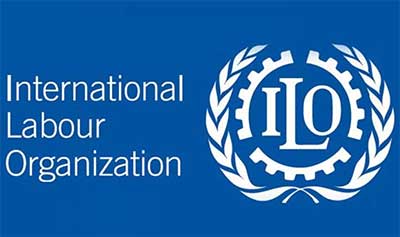Daily-current-affairs
/
23 Oct 2020
International Labour Organisation (ILO) : Daily Current Affairs

International Labour Organisation (ILO)
Why in NEWS ?
- India becomes chair of ILO governing body.
About
- India assumed the role of chair of the International Labour Organisation’s governing
body for the period of October 2020 till June 2021.
- It is taking up the role after a gap of 35 years.
- Labour Secretary Apurva Chandra will preside over the upcoming meeting of the
governing body in November.
- The ILO’s governing body is its apex executive body that decides on matters of
policy, agenda and budget as well as elects the Director-General.
- It will also provide a platform to appraise participants of the transformational
initiatives taken by the government in removing the rigidities of the labour market
besides making its intention clear about universalisation of social security to all
workers whether in the organised or unorganised sector.
International Labour Organisation (ILO)
- The International Labour Organization (ILO) was established by the Treaty of
Versailles in 1919, is a United Nations agency dealing with labour issues, particularly
international labour standards, social protection, and work opportunities for all.
- The ILO was established as an agency for the League of Nations following First World
War.
- Its founders had made great strides in social thought and action before the
establishment of the organization itself.
- It became the first specialised agency of the United Nations (UN) in the year 1946.
- The ILO has played a significant role in promoting labour and human rights. It had
held a significant position during the Great Depression (1930s) for ensuring labour
rights.
- It played a key role in the decolonization process and in the victory over apartheid in
South Africa.
Objectives
- The ILO is the only tripartite U.N. agency. The ILO is a meeting point for
governments, workers and employers of ILO’s member States to set labour
standards, improve upon policies and create programs that promote decent work for
people. The four strategic objectives at the heart of the Decent Work agenda are:
- To develop and effectuate standards, fundamental principles, and fundamental
rights at work.
- To ensure that men and women have equal access to decent work while enhancing
opportunities for the same.
- To magnify the coverage and effectiveness of social protection for everyone.
- To strengthen Tripartism and social dialogue.







